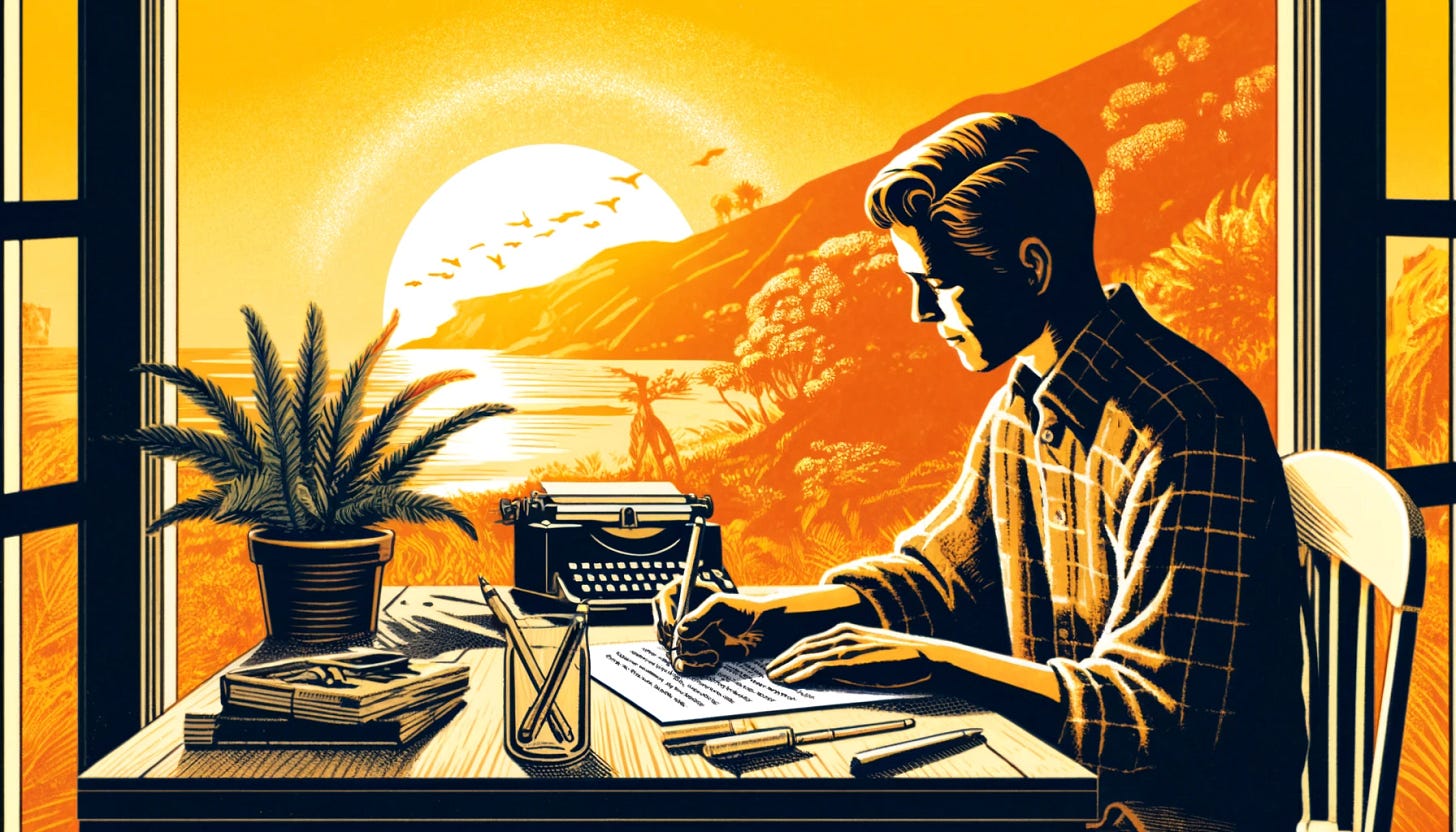On Writing
Engineering Art of Writing
Hiya everyone!
If you like what you read, please hit that like button, share it, or leave a comment so that the Substack knows to let more people read it. Please suggest a topic for a future essay here!
There is no rule on how to write. Sometimes it comes easily and perfectly; sometimes, it's like drilling rock and then blasting it out with charges.
Ernest Hemingway
I wrote about how taking daily notes helped me through tough times, helped me grow, and showed me the value of writing. I do not take daily notes anymore; I take weekly notes instead. I found it the easiest way to start writing and avoid the "paralysis" phase. I love this quote by Stephen King: "The scariest moment is always just before you start. After that, things can only get better."
Writing is integral to personal and professional growth, especially for software engineers. It might sound counterintuitive, but it is one of the most effective ways to have more impact. Whether crafting documentation, communicating ideas, or jotting down creative thoughts, the art of writing enhances clarity, articulation, and, most importantly, understanding.
Writing, at its core, is an exploration—a journey into the depths of one's thoughts and a medium through which ideas crystallise into clarity. It's not just about refining thoughts but about sparking new ones, a critical exercise in problem-solving and innovation.
I keep a few things in mind whenever I write. Let's go over them one by one.
You
How do you feel? Are you writing to declutter your head? Are you reacting to something? Are you reflecting on something? Do you feel passionate about the topic (aka strong opinions) or "just have thoughts"?
Writing is art whether you want it or not; art is an expression of freedom. You want to be able to express yourself and nurture ideas. You also want to recognise if you are writing an unsent letter to someone.
Put yourself in a good frame of mind and enjoy the process.
Your Audience
Who is your writing intended for? What do they care about? What problems do they have? Why would they want to read what you write?
Your writing will be different depending on the answers to the questions above. Nothing is groundbreaking here, but it is essential to remember this. Think about explaining what you're currently working on:
to your colleagues
to your manager
to a sales/design/product person at your company
to your family and friends
It is vital to recognise who you are writing for. You usually know what you want to say but cannot put it into your audience's perspective because you do not understand what they care about. Sometimes, writing is the wrong thing to do before knowing more about your audience.
Format
Are you writing something brief? Are you proposing something? Are you trying to share as much context as you can? Are you trying to communicate a narrative?
The questions above will help you define the tone and volume of your writing. I'll give a few examples:
To be as efficient as possible with the reader's communication bandwidth, use brief and concise paragraphs that convey information, underline key points, and link to background context ( little-to-no structure, no narrative, intro or conclusion.)
To propose something new (or change someone's mind), use brief and concise to set the stage, then say what you want to do, then lead to specific actions, and end with the context that has led to those actions.
To provide full context and information for people without any background in a topic (with a complete narrative structure), starting with why someone should care and background, following with details, metrics, efforts and ending conclusion.
Tools
There is a thing or two to say about writing tools: pen & paper vs your laptop (any digital medium.) You should be aware of how the tools impact you and your writing:
Pen and paper will enhance cognitive engagement and memory retention. It is slower than typing, making you think and reflect more, producing more nuanced, richer writing. Also, the physical act of writing stimulates brain regions involved in thinking and memory.
Pen and paper usually reduce the barrier between thought and expression because of the tactile nature of pen and paper.
When using pen and paper, there are no digital distractions.
Laptops are ideal for capturing flowing ideas quickly since typing is faster than writing, making them perfect for taking quick notes.
Editing, Revision and Proofreading
You won't nail it on the first pass, and that's okay. Improve it little by little. If you have someone who can provide early feedback and proofread it, that's amazing - take them up on that!
I suggest not overthinking it; writing is subjective and, as I mentioned, is art. Do read On Writing Well, a short read that helped me understand the value of clarity and simplicity in writing.


